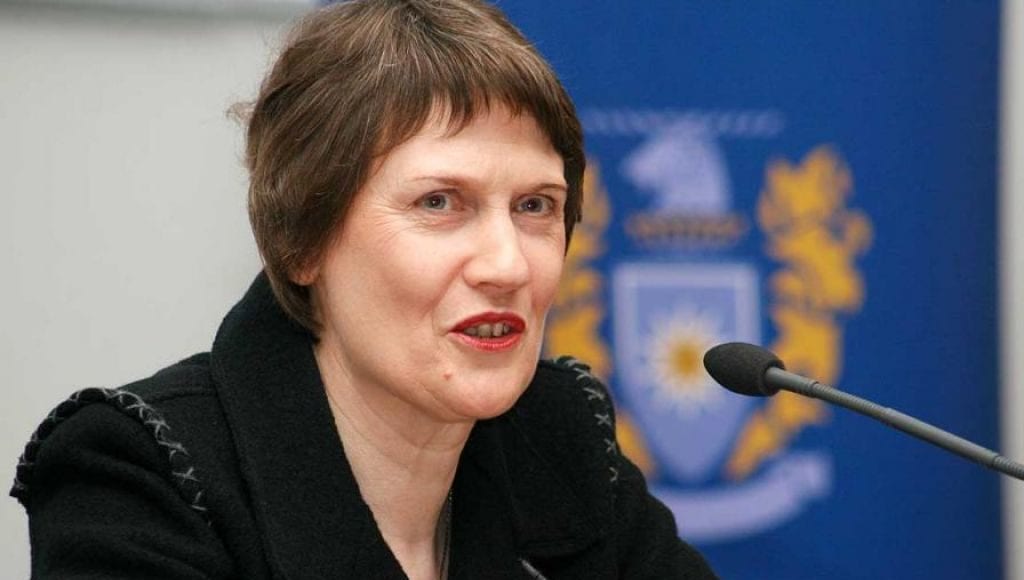Chair of the Extractive Industries Transparency Initiative (EITI) International Board Helen Clark said as the world reels from the COVID-19 pandemic, the Secretariat recognises the challenges it will bring on EITI implementing countries whose economies may take a hit from reduced extractive sector investment, including oil and gas.
Writing in a blog posted on EITI International’s website on March 27, captioned ‘Covid-19: Likely impacts, wider implications and our response’ Clark expressed her support for all implementing countries – Guyana being among them – on behalf of the Board.
“We recognise that countries around the world are facing a deeply challenging and unpredictable situation caused by the spread of the virus. At the same time, the upheaval in the markets for oil and other commodities will have far reaching consequences for governments which depend on revenues from the extractives sector,” she wrote.
Clark is a widely respected global leader on sustainable development and international cooperation. She served three successive terms as Prime Minister of New Zealand between 1999 and 2008.
Delay in new projects
In some countries, she said, even small changes in commodity prices can have a material impact on both industry profitability and government revenues. “Under current price scenarios, we can expect exploration and the development of new projects to be delayed or cancelled. We can also anticipate closures and restructuring of some existing projects. Companies and their employees and suppliers will be affected. Vulnerable communities who depend on extractives operations will be among those most severely impacted,” said Clark.
She noted that it is inevitable that in some countries there will be short-term delays in EITI implementation “as governments and stakeholders reassign their time to more pressing priorities.”
As a result of the situation, there may be delays in technical, capacity development, communication and dissemination activities over the longer term and said that the International Secretariat is working closely with national stakeholders to respond and adapt to these challenges.
Because of the current restrictions on travel, trade and everyday life that the pandemic is causing, the 47th EITI Board meeting in June will be held virtually.
“The events are unprecedented, and we will need to be creative and innovative in how we work. One lesson which has been learnt from the current public health situation is the need for transparency. In this time of profound uncertainty, the EITI’s work to promote greater transparency and good governance is as important as ever,” she said.
The International Board Chair said that the International Secretariat will continue to support countries to move towards greater transparency and good governance in the extractives sector. She noted that despite commodity price falls, the extractives sector remains an engine for growth in many countries and a source of much-needed funding for countries in handling the current health crisis.
“There will be a need to bring stability to the industry after this period of crisis. We see a role for dialogue and collective approaches in this task. We stand ready to work with donors, civil society, supporting companies and countries to consider how EITI multi-stakeholder structures may best serve in the current crisis and its immediate aftermath.
“In the interim, we urge all stakeholders to go about their business in a way which safeguards public health and takes account of the gravity of the situation. Please observe any restrictions on movement in your countries and, above all, remain safe and well,” said Clark.
Guyana became an EITI implementing country in October of 2017, following the acceptance of its application by the International Board of EITI. Guyana submitted its first EITI Report in April 2019 and is supposed to be validated on the basis of that report this year.
However, this validation, like many other scheduled EITI-related activities, hangs in abeyance due to the COVID-19 pandemic.



